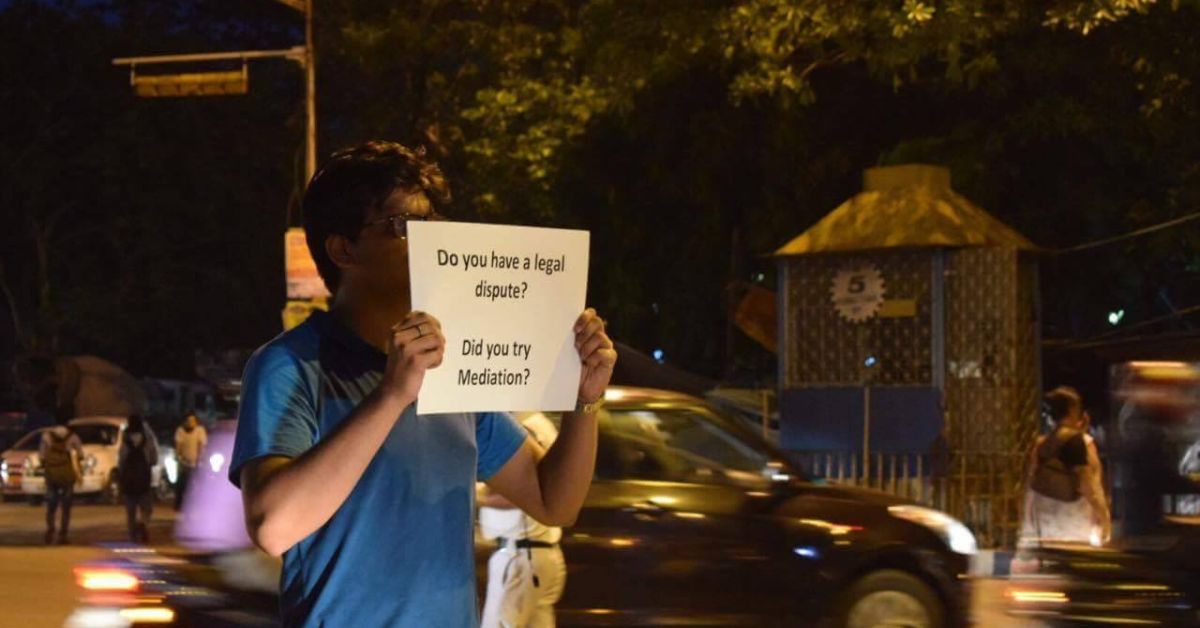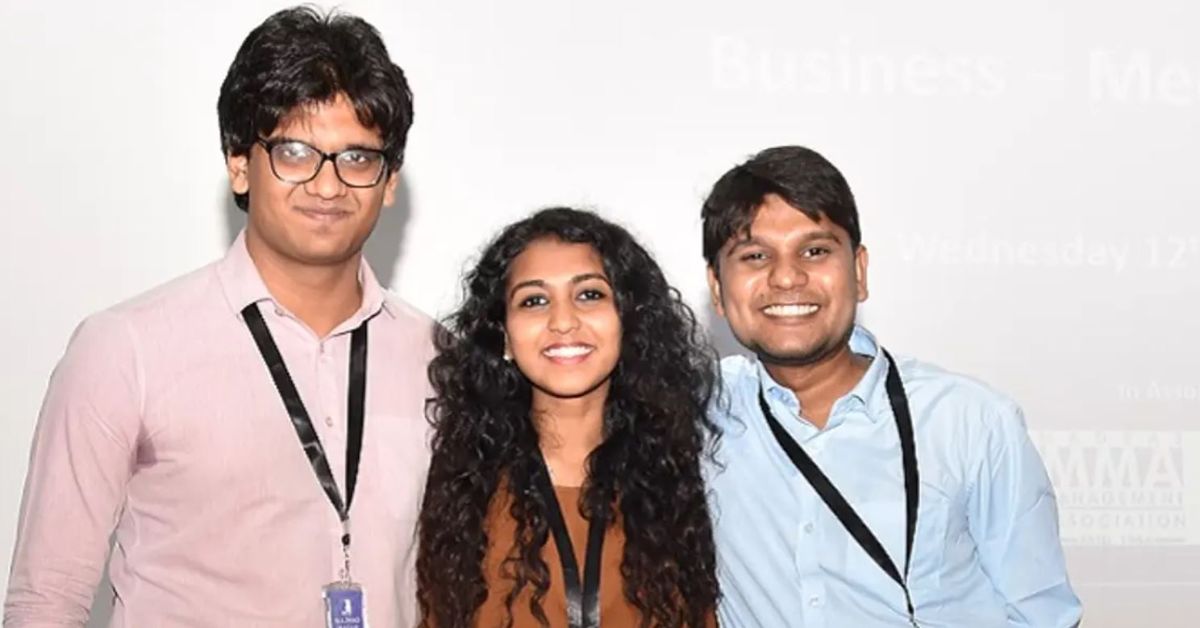For years, a Bengaluru-based B2C company had been providing software solutions to other startups in their day-to-day operations.
The company in question operated on a paid subscription model. However, it did not receive timely payments for their services. It had become a task to recover the invoices from customers.
“We would raise invoices but did not get paid in time. As a result of this, we were forced to disconnect their services until they paid but keeping a track was getting difficult. There were invoices amounting to lakhs of rupees which were stuck,” shares one of the company’s employees on a condition of anonymity.
The company tried reaching out to the customers through multiple phone calls and emails, but received no response.
“We did not have the bandwidth to file a court case and physically visit the court. So, we sought help from a legal startup called Sama which issued notices to them. Within 30 days, our case was resolved and we were able to recover our invoices,” she adds.
Interestingly, the case was solved online!

Similarly, Sama, a Bengaluru-based legal tech startup, has resolved more than 35 lakh cases out of court and cost-effectively.
Co-founded by three college students, Pranjal Sinha, Akshetha Ashok, and Vikram Kumar, we sat down with Pranjal to understand how they are revolutionising the legal system.
An idea to resolve year-long disputes online
While Vikram pursued higher education in computer science, Pranjal and Akshetha studied law. In 2015, Vikram and Pranjal, who was then a second-year law student at the West Bengal National University of Juridical Sciences, met at the Startup Weekend event hosted by IIM-Calcutta.
“All of us came with a startup idea. I envisioned working on an Online Dispute Resolution (ODR) system that could reduce the dependency on courts which are already burdened with a backlog of cases,” says Pranjal.
In 2018, he got JAMS Weinstein International Fellowship opportunity as part of which he attended the mediation training course at Harvard Law School and the Business Development Course at the Stanford Graduate Business School.
“I was always fond of mediation. This three-month long fellowship allowed me to observe the online dispute resolution and case management concepts in the US. Back at home in India, the tareekh-pe-tareekh (chronic delay in judicial proceedings) hinders justice. I wanted to reduce the burden on courts,” adds Pranjal.
In 2015, the trio launched Sama – meaning to ask and advise others. Sama is based on saam – one of the four laws in Chanakya’s neeti – saam (persuade), daam (purchase), dand (punish), bhed (exploit the weakness).

The startup focuses on resolving civil disputes such as banking, financial, insurance sector, broker disputes, and security market. “We also work with Lok Adalats which manages disputes related to challan and electricity bill, accidental insurance, and cheque bounce cases,” says Pranjal.
Explaining the functioning of their startup, Pranjal informs that firstly the grievant registers on the website and then files their cases.
Thereafter, the team invites the other party through email, phone number, and sends a notice through courier for out of court settlement. Soon, an experienced mediator is appointed to speak to both parties and tries to arrive at a rajinama (settlement) between them.
“We try to complete this process within 30 days. After this, we design a settlement agreement and take signatures of both parties and mediators. It has the same value as the decree of the court. The only difference is that it requires three years in court whereas 30 days with us,” claims Pranjal.
However, if the settlement does not occur at the mediation level, the case goes for arbitration. “While mediation cannot pass a judgement and only strive for settlement, arbitration gives the final judgement. The case in arbitration gets resolved within 90 days,” he adds.
In India, Pranjal says, private parties can resolve disputes provided they comply with the Mediation Act 2023 and the Arbitration and Conciliation Act, 1996. The startup also received recognition from the former Union Minister of Law and Justice Kiren Rijiju for promoting ODR in India.
So far, the startup has onboarded more than 3,000 arbitrators with at least 10 years experience and mediators with at least five years of legal experience across 443 districts in the country.
Reducing the burden on courts
The startup got its first client in 2019. Between 2015 and 2018, they didn’t get any cases.
“People didn’t even understand the word mediation. They would confuse it with meditation,” he laughs, adding, “Initially, we worked a lot to raise awareness about ODR. We organised nukkad nataks and campaigns like suljhao magar pyaar se (resolve with love), used flash mobs, and distributed pamphlets.”
Fast forward to 2024, they have solved more than 35 lakh cases.
Explaining how Sama assists the clients online, Pranjal says they appoint a case manager to each party. “The case manager is like a friend to them. They help them with administrative support from uploading documents, logging in, and any guidance required in the case. This has helped give a human touch and make online proceedings easier,” he adds.
But working online also poses challenges such as contactability with parties who have old phone numbers registered and the lack of support from lawyers who do not understand the importance of ODR.
“We have started sending offline notices to parties and making sure that the experience for our 3,000 lawyers is good so that they can spread the word about ODR. We are also experimenting with artificial intelligence to handle more case volume,” he shares.

To ensure speedy out of court settlements, Sama incentivises success rates of cases instead of paying fee per hearing.
“Usually, we see that lawyers try to extract more amounts from clients and keep delaying the case. But our business model is based on incentivising the lawyers based on the success rates of the cases. We give 4x money if the settlement is reached on time. This encourages mediators to solve the cases fast and reach a conclusion,” he adds.
For every case, Sama charges one percent of the claim amounts in the case. “If the dispute is within a lakh, we charge the client Rs 1,000, whereas we take Rs 2,000 for clients between Rs 1-3 lakh. This is 99 percent cheaper than the courts,” he says.
Early this year, Sama was featured in the Shark Tank India season 3 and bagged a deal of Rs 1 crore from boAt co-founder Aman Gupta, Namita Thapar, the executive director of Emcure Pharmaceuticals, and Ritesh Agarwal, the CEO of OYO Rooms.
“Not only did we receive the funding but this exposure also helped us get a good reach and spread awareness about ODR. Our idea got a validation when we explained it to the viewers in a non-legal language. Finally, our families also understood what we were trying to do,” he laughs.
Looking at the success of the startup, Pranjal says, “Personally, it has been a very challenging but rewarding journey for us. I really feel Sama is a divine sewa (service). Every day, we deal with a lot of negativity but when years long disputes are solved, we get equal amounts of satisfaction.”
“It will take us another 10 years to make Sama a primary resort for civil disputes to be able to reduce the burden on courts so that they can focus on criminal cases instead,” he says.
Edited by Padmashree Pande. All photos: Pranjal Sinha.
No comments:
Post a Comment